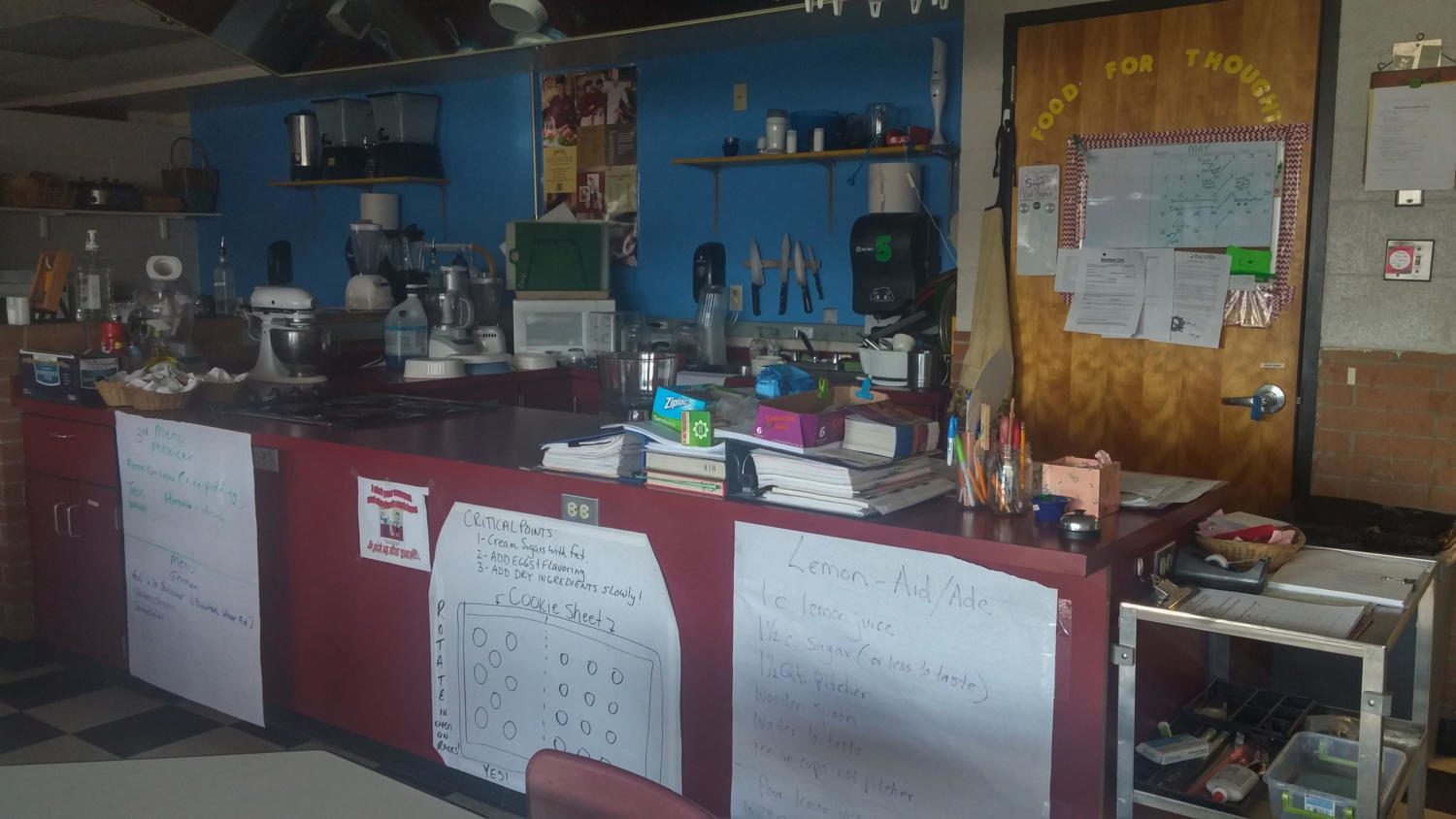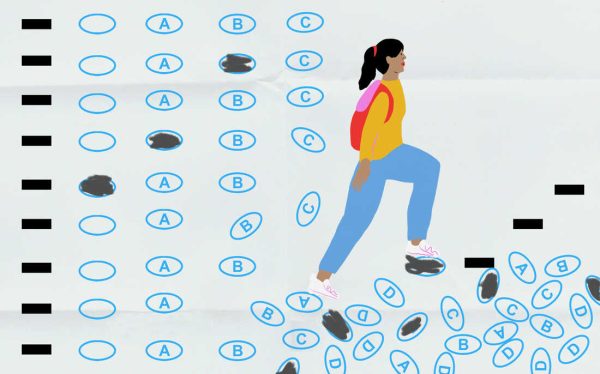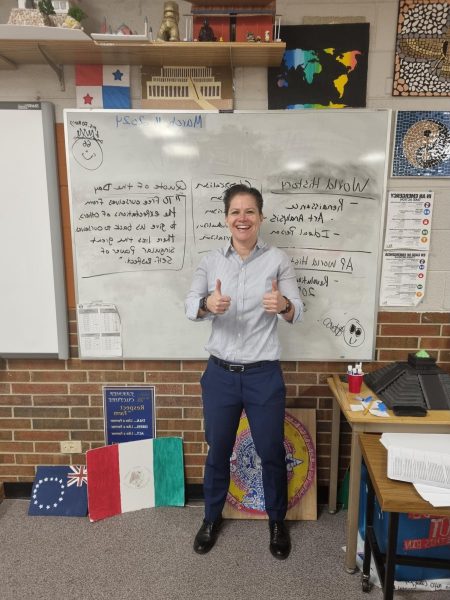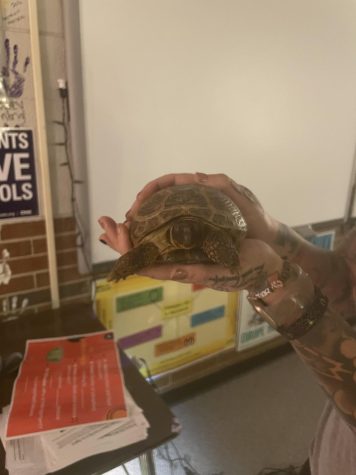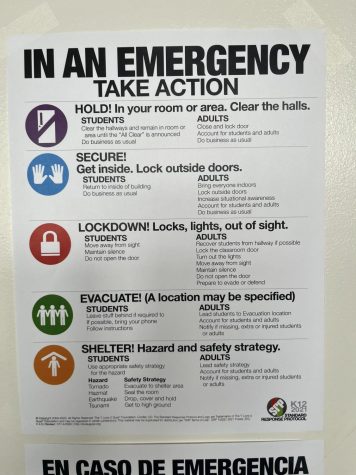Budget Constraints Take Away Important Student Program
The teacher demonstration area in the FACS classroom awaits the last lessons of the program. by Rachel Vigil
May 17, 2017
After Jefferson County’s failure to pass 3A and 3B in this past November election, the entire school district has been forced to make cuts.
Here at Wheat Ridge, that has included cutting the entire Family and Consumer Sciences Program.
Through this program, students have the opportunity to take culinary nutrition, food services, child development, and fashion as classes. They tackle essential life skills that prepare kids to live and cook on their own, as well as take care of children.
In the past, Family and Consumer Sciences was known as “Home Economics.” It has been a staple of American schools since the late 19th century when Ellen Swallow Richards, the first woman to attend Massachusetts Institute of Technology, campaigned to teach women how to prepare nutritious food and efficiently manage a home. It was further promoted by Eleanor Roosevelt during the Great Depression.
These days, the field shifted from a women-centered course to one more split between genders. It has also expanded past just cooking.
Family and Consumer Sciences may seem to some like an unimportant course when we also need our students to strengthen their math and reading proficiency. However, this ignores the fact that while it is important to know how to find the volume of a cone, it is more important for the entire population to be able to feed themselves in a healthy and cost-effective way.
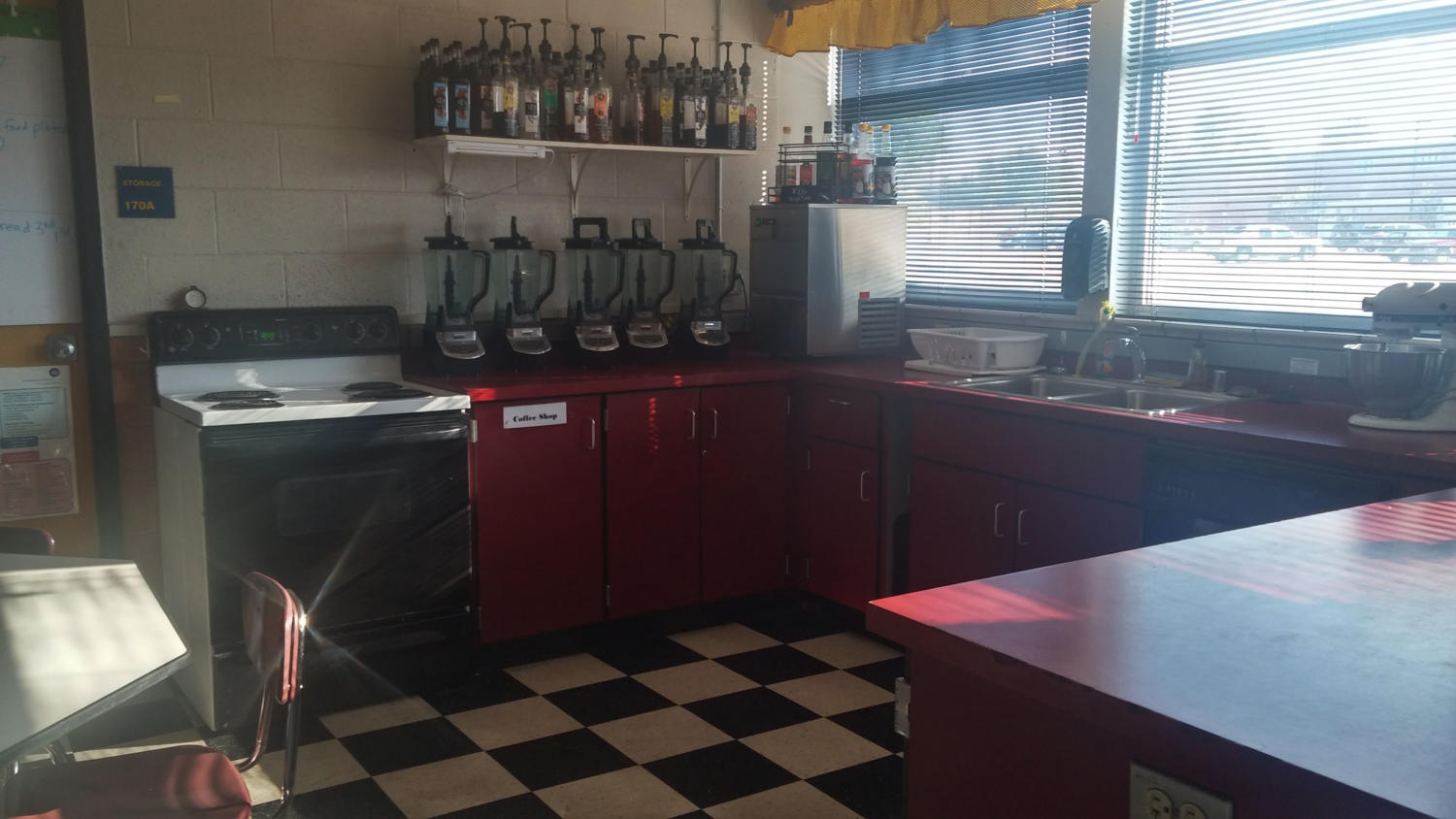
According to the National Health and Nutrition Examination Survey from 2009–2010, more than two in three American adults are considered to be overweight or obese. These rates have been continually increasing, so it is essential for the next generation of Americans, and Farmers, to learn how to prepare healthy food.
The plan to cut this program also runs counter to Career Explore Program recently started by the school. This program aims to give students alternative pathways to college when considering their future careers. However, getting rid of CFS which prepares students not for college, but for life, seems counterintuitive. Not to mention, it provides students going into the hospitality field of Career Explore a good basis for their career training.
All students need the skills taught in these classes. Measuring properly, learning how to read a recipe, being able to sew and repair your own clothes can help every person function as an adult who can take care of themselves.
We are constantly told that high school is here to prepare us for the real world and our careers. Yet, even though we have a track that prepares students for college, and one that prepares them for alternative careers, we are getting rid of the program that helps students prepare for 50 years of being responsible for taking care of themselves. I do understand that by cutting this program the school is able to save money. However, I find it sad that budget constraints have forced our school to cut an often underappreciated program that gives students tools they will use every day for the rest of their lives.

